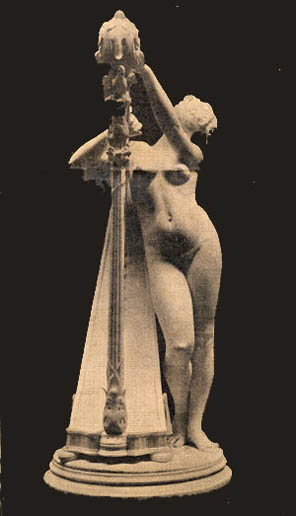Unless otherwise stated all pictures on this page have been scanned from engravings, postcards and other publications in our own collection. All rights of reproduction reserved.
![]() HENRY DING AND BERLIOZ
HENRY DING AND BERLIOZ
The harp
Berlioz was the first composer to use the harp in the symphony orchestra, and he had a special affection for the instrument. Many of his compositions feature the harp, including all three of his operas, his symphonies excepting the Symphonie funèbre et triomphale and three of his choral works. Each of the compositions brings out different qualities of the harp: ethereal and delicate as in the “Ballet des Sylphes” in La Damnation de Faust and the “Queen Mab Scherzo” in Roméo et Juliette; celestial, as in Marguerite’s “apotheosis” in La Damnation de Faust; stately and festive, as in the last movement of the Te Deum; glittering, as in the second movement of the Symphonie fantastique and “Festivities at the Capulets” in Roméo et Juliette; and gentle and warm as in the “Trio” in L’Enfance du Christ.

This elegant marble sculpture, made in 1890, is in the Musée de Grenoble in France.

This picture appeared on the cover page of the 7 February 1925 issue of La Gazette des Alpes, along with a two-page article inside on the Dauphinois sculptor Henry Ding. A copy of the issue is in our collection.
![]()
© (unless otherwise stated) Monir Tayeb and Michel Austin. All rights of reproductionreserved.